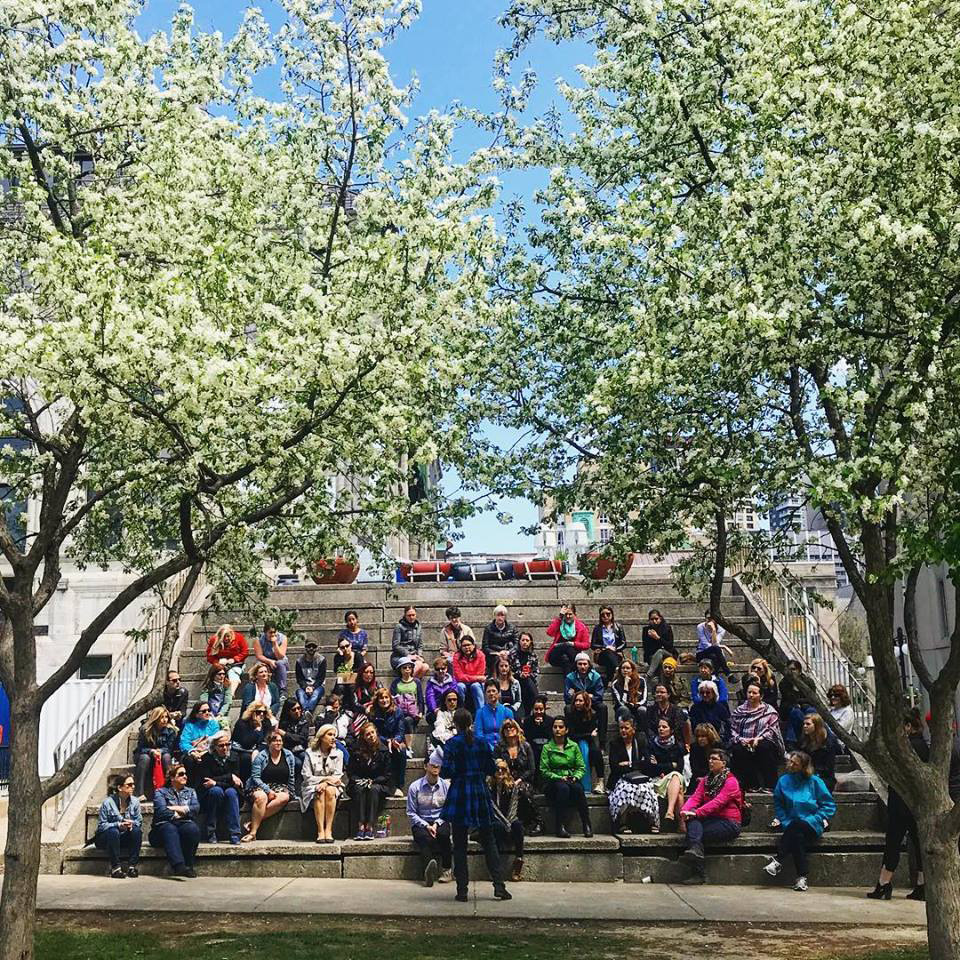Building a culture of sustainability sometimes comes from big, seismic shifts and other times it comes from small, but steady improvements. The McGill Office of Sustainability (MOOS), ever committed to this task, has come out with two new resources to help staff take part: a Staff Sustainability Guide for new employees and a resource for incorporating sustainability objectives in performance dialogues.

As one of the 45 deliverables outlined in McGill’s Vision 2020 Climate & Sustainability Action Plan, released last year, the MOOS and Human Resources are inviting supervisors and their employees to use this document to help set sustainability-related objectives during performance dialogues.
“Integrating sustainability objectives in the performance dialogue is a way to embed this increasingly important topic in the DNA of our institution,” said Diana Dutton, Associate Vice-Principal, Human Resources. “It is a wonderful way to progressively change our organizational culture, make a department’s commitment to sustainability measurable and defined, and demonstrate personal leadership.”
Sustainability: Learn, act, connect
Examples of sustainability objectives include reducing business travel by utilizing remote conferencing, leading an accessibility audit of the office space, or developing a program to promote active transport (e.g. biking, walking) to work.
Staff will also find many helpful programs and ideas for their performance dialogues in the the Staff Sustainability Guide. Developed for new McGill employees, the Guide outlines many different ways to engage with sustainability practices, programs, and initiatives on campus. It is divided into three main sections, representing a continuum of engagement: learn, act, and connect.
“Whether you’re new to the concept of sustainability or have a Ph.D. in ecology, there are so many ways to engage with this topic at McGill. Our office compiled all the existing programs and resources for staff to get involved – from signing up for a sustainability workshop to making your events more sustainable – to make it easy for new employees to plug into the action, ” said Director of the McGill Office of Sustainability, François Miller.
Landmark green initiatives
For over a decade, staff at McGill have been instrumental in the creation of some of McGill’s landmark sustainability initiatives. For example:
- Oliver De Volpi, Executive Chef, Operations and Sustainability, has worked with students and faculty to drive sustainable transformations in McGill’s food system. Since 2009, food produced at the Macdonald Campus Horticultural Research Centre has been served in McGill-operated cafeterias and now 50 per cent of the food served is sourced from Quebec suppliers. He has also overseen Marine Stewardship Council and Fair Trade Campus certifications in all McGill-operated dining halls, winning the Fair Trade Campus of the Year Award in 2016.
- Rachel Desjourdy, Access and Inclusion Officer at the Office for Students with Disabilities (OSD), collaborated with the McGill Office of Sustainability to design a workshop on Accessible & Sustainable Event planning, along with other programming offered through the Access Ambassadors program. She has also helped create an accessible outdoor garden space for staff and students this summer, and is coordinating the launch of the OSD’s indoor hydroponic garden.
- Jérôme Conraud, Energy Manager with Utilities and Energy Management, is collaborating with individuals across the University to decarbonize our energy systems by working on cost assessments, finding technological solutions and sources of funding, and informing decision-makers. His department is working hard to reach McGill’s goal of achieving carbon neutrality by 2040, hopefully ahead of the target date.
- The McGill Grounds team, including Eric Champagne, McGill’s Horticulture Supervisor; and Franco Nardi, Grounds and Vehicle Maintenance Supervisor, have worked to transform the way the University tends to its plants and grounds – replacing chemical fertilizer with compost on grass and plant beds, annual flowers with perennial plants, and reusing woodchips from fallen branches. They have also bought a number of electric vehicles and tools (e.g. leaf blowers) to tend to McGill’s grounds.
- Stéphanie Leclerc, Sustainable Procurement Program Manager, has been helping McGill incorporate social, environmental and economic considerations into purchasing decisions and processes, and works with other units to optimize the lifecycle management of McGill’s tangible assets. Notably, she contributed to the development and implementation of the University’s Supplier Code of Conduct and five-year Sustainable Procurement Strategic Plan.
With more sustainability networks and resources available to staff than ever before, like the nearly million-dollar-a-year Sustainability Projects Fund, Sustainable Workplace Certification, and Staff Sustainability Network, Miller expects this list of sustainability champions to grow.
“People have to start somewhere and we’re lucky that, at McGill, there is already a strong tradition of sustainability leadership from which we can all learn,” he said.
